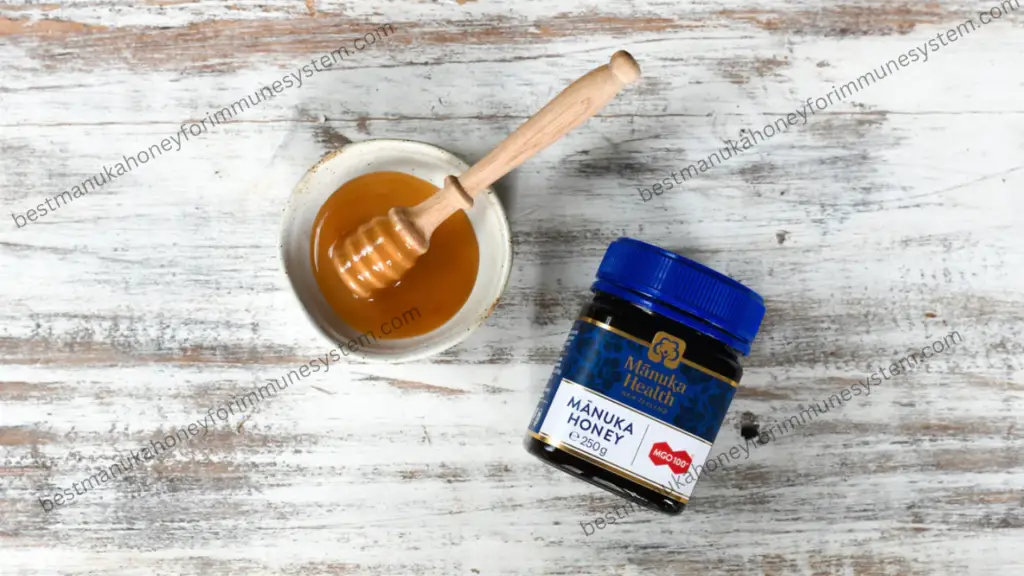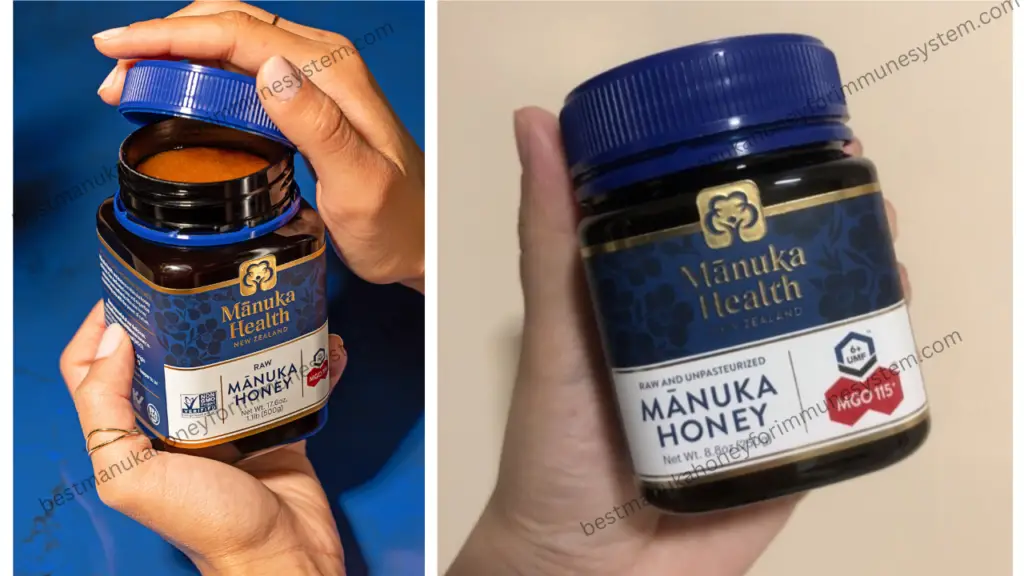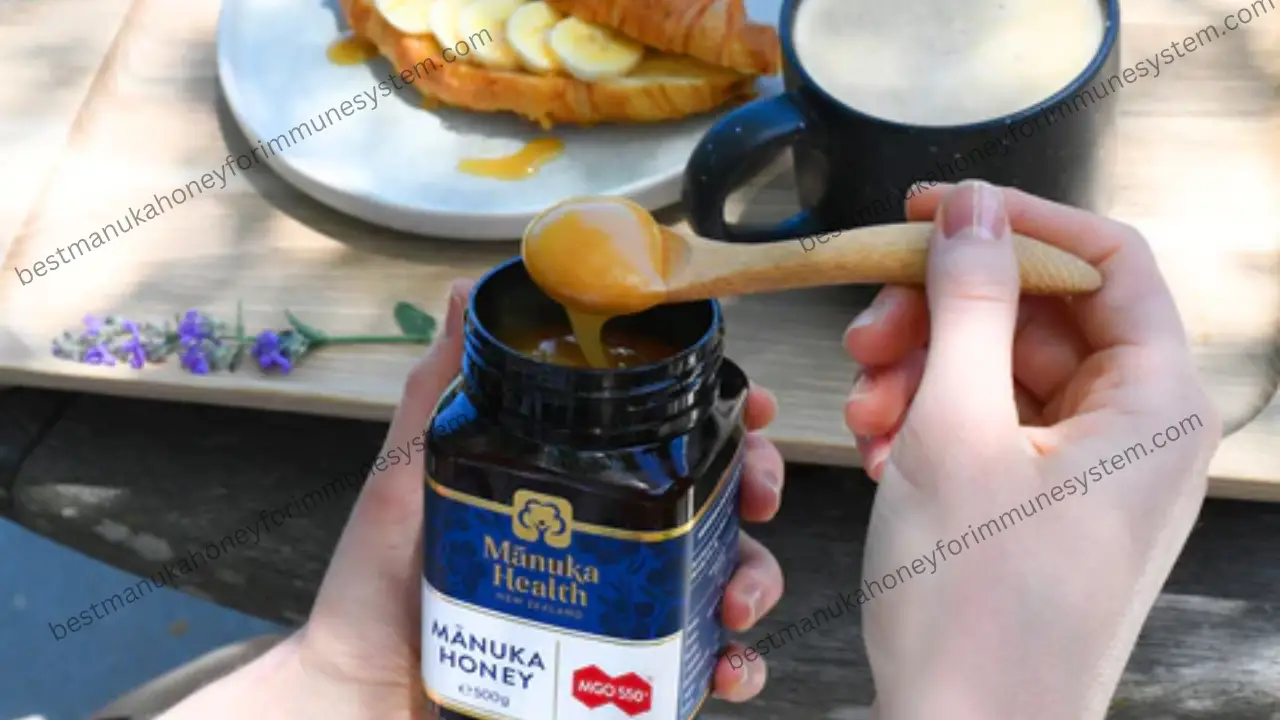How should I store Manuka honey: Manuka honey is known for its unique and potent health benefits. However, to ensure that you can enjoy its goodness for a longer period, proper storage is crucial.
Over time, Manuka honey can lose its quality and potency due to factors such as exposure to light and air or incorrect storage temperatures.
In this section, we will discuss tried-and-tested ways to store your Manuka honey and preserve its quality.
Key Takeaways:
- Proper storage is crucial for preserving the quality and potency of Manuka honey.
- Factors such as exposure to light and air or incorrect storage temperatures can affect the honey’s quality over time.
- Choosing the right container, maintaining the ideal storage temperature, avoiding direct sunlight, controlling humidity levels, sealing the container tightly, storing it in the right location, avoiding cross-contamination, and regularly checking for signs of spoilage are essential for proper Manuka honey storage.
Let me know if this works for you, or if you need any changes!
Understanding the Importance of Proper Storage
As a Manuka honey enthusiast, I know firsthand the importance of proper storage to maintain the honey’s quality and taste.
Honey is a unique food product that can last indefinitely if stored correctly. However, improper storage can result in honey spoilage, making it necessary to understand how to store the honey properly.
The quality of honey can be affected by various factors, such as temperature, light, moisture, and exposure to air. Proper storage is vital as it helps to prevent these factors from damaging the honey.
In addition, it also ensures that the honey’s flavor, texture, nutritional value, and health benefits remain intact over time.
Proper storage is essential for any type of honey, but it is especially critical for Manuka honey. Manuka honey is a premium honey variety that comes with unique health benefits, making it a prized possession.
However, improper storage can compromise these benefits and spoil the honey’s medicinal properties, reducing its effectiveness.
It is therefore essential to take the time to understand the importance of proper storage for Manuka honey.
In the next sections, we will discuss the best practices for storing Manuka honey, focusing on the factors that can affect the honey’s quality and why appropriate storage is necessary.

Choosing the Right Container
The container is vital for preserving the quality of Manuka honey. When choosing the right container, consider the following:
- Material: Glass or food-grade plastic are ideal options for storing honey. They are non-porous, do not contain harmful chemicals and are easy to clean.
- Size: Choose a container size that fits the amount of honey you’ll be storing. A larger container with air pockets may lead to faster deterioration of the honey.
- Shape: A wide-mouthed container makes it easier to scoop out honey but may allow more air to enter. A narrow-mouthed one reduces air exposure but may make it harder to reach the honey.
- Lid: Ensure the container has a tight-fitting, airtight lid to prevent air and moisture from getting in.
When in doubt, choose a container made specifically for storing honey to ensure maximum freshness.
Ideal storage temperature
Temperature plays a crucial role in the storage of Manuka honey, as it can significantly impact its quality and taste. The ideal storage temperature range for Manuka honey is between 50°F and 70°F (10°C and 21°C).
It’s essential to keep the honey at a stable temperature within this range to avoid any crystallization or spoilage.
If the temperature falls below 50°F (10°C), the honey may start to crystallize, while temperatures above 70°F (21°C) can accelerate the honey’s fermentation process, leading to spoilage.
Therefore, it’s essential to store the honey in a cool and dark place, away from direct sunlight and heat sources.
By maintaining the ideal storage temperature range, you can ensure that your Manuka honey retains its unique flavor and high nutritional value for an extended period.
Avoiding Direct Sunlight
Direct sunlight can negatively affect the quality of Manuka honey. Exposure to sunlight can cause the honey to lose its flavor, aroma, and color, and could even lead to crystalization or fermentation. Therefore, it’s crucial to store your honey away from direct sunlight to preserve its quality.
The ideal storage location for Manuka honey is a cool, dark place like a pantry or a cupboard. Make sure the container is not exposed to any sunlight or heat-producing appliances like an oven or a stove.
If you don’t have a suitable location to store your honey, consider covering the container with a cloth or a decorative wrapping to reduce the exposure to light.
Another way to avoid direct sunlight is to choose a container that is light-resistant, like a dark glass jar or a metal can. These materials are less likely to let sunlight through and will help preserve the quality of your honey.
Avoid using clear plastic containers as they are not ideal for blocking sunlight and can even release chemicals that could affect the honey’s quality.
Remember, storing Manuka honey away from direct sunlight is crucial for maintaining its quality and flavor. Follow these tips to prevent any light damage and preserve the honey’s integrity for a longer period.

Controlling humidity levels
A proper humidity level is crucial for the preservation of Manuka honey. High humidity can contribute to moisture and air in the container, which causes the honey to deteriorate and may promote the growth of bacteria and yeast. To maintain the right humidity level, you can follow these tips:
- Store Manuka honey in a room with a consistent temperature and humidity level. Avoid storing the honey in areas where there are extreme temperature changes or high humidity levels.
- Use a dehumidifier to keep the humidity level in the storage area at a consistent level, preferably around 60% or below.
- Avoid opening the honey container unless necessary to prevent moisture from entering the container.
By taking these steps to control humidity levels, you can ensure the longevity and quality of your Manuka honey.
Storage Location
Where you store your Manuka honey can significantly impact its quality and freshness. It’s best to keep it in a cool, dark place away from any direct sunlight or heat sources.
If possible, store the honey in a pantry or cupboard that has a consistent temperature and humidity level, away from any strong-smelling foods or cleaning agents that could affect the honey’s taste and aroma.
Avoid storing Manuka honey in the refrigerator, as this can cause it to crystallize and affect its texture and flavor.
Remember to always store the honey in its original container or airtight glass jar. This will help prevent any oxidation and moisture from entering, which could lead to spoilage.
Sealing the Container Tightly
It is essential to seal the container tightly to prevent moisture and air from entering, which could affect the quality of Manuka honey.
When storing your honey, ensure that the lid or cover is tightly secured to prevent any contamination or oxidation.
Using a container with an airtight seal is the best option to keep your Manuka honey fresh and delicious for a longer period.
You can also use plastic wrap or aluminum foil to cover the container before putting the lid on to provide an extra layer of protection.
Another tip is to wipe the rim of the container to ensure that no honey is sticking to it and making it difficult to close tightly. This will also prevent any ants and other insects from getting into the jar.
Remember, a tight seal is essential to maintain the quality and flavor of your Manuka honey, so make sure to seal the container tightly!
Avoiding Cross-Contamination
Properly storing Manuka honey is crucial, but it’s also essential to avoid cross-contamination with other substances to preserve its quality.
Here are some tips to prevent cross-contamination:
- Keep your honey away from other foods in your pantry or fridge to avoid any spills or accidents that could mix it with other substances.
- Use a clean spoon or utensil every time you scoop Manuka honey from the container. Avoid using the same utensil that you’ve used for other foods.
- Even if you’re using a new spoon or utensil, make sure it’s clean and dry before using it to scoop honey.
- Don’t store your Manuka honey near strong-smelling foods or chemicals as honey quickly absorbs odors.
By following these tips, you can avoid cross-contamination and ensure that your Manuka honey remains pure and of the highest quality.

Checking for Signs of Spoilage
Even with proper storage, it’s important to check Manuka honey for signs of spoilage to ensure its quality. The good news is that it’s easy to spot when honey has gone bad.
The first thing to look for is any discoloration or crystallization of the honey. If the honey appears cloudy or has a grainy texture, it may have started to spoil.
Another sign of spoilage is an unusual odor or flavor. Manuka honey has a distinctive taste, so any deviation from that could indicate that it’s past its prime.
To check for spoilage, I typically perform a visual and olfactory test. I look for any discoloration, crystallization, or unusual odors and flavors. If I see or smell anything out of the ordinary, I discard the honey.
It’s also important to note that honey never really spoils, but it can lose some of its beneficial properties over time. So, it’s best to use Manuka honey within its recommended shelf life to maximize its benefits.
Conclusion
Properly storing your Manuka honey is the key to preserving its quality and taste for a longer period. By following the guidelines discussed in this article, you can ensure that your honey remains fresh and delicious for weeks or even months.
Remember to choose the right container, preferably one made of glass or food-grade plastic, and avoid exposing the honey to direct sunlight.
Maintaining the ideal storage temperature, between 50°F to 70°F, is also crucial to prevent spoilage and ensure optimal preservation.
Controlling humidity levels, sealing the container tightly, and storing the honey in a cool, dry place can further help prevent moisture and air from entering, which could affect the honey’s quality.
When storing your honey, also make sure to avoid cross-contamination with other substances.
Finally, it’s essential to check for any signs of spoilage regularly. If you notice a change in texture, color, or smell, it’s time to discard the honey and buy a fresh new jar.
By following these storage tips, you can enjoy the numerous health benefits of Manuka honey for a long period.
FAQ
How should I store Manuka honey to preserve its quality?
It is essential to store Manuka honey properly to maintain its quality and freshness. Here are some tips to help you store it correctly.
Why is proper storage important for Manuka honey?
Proper storage is crucial for preserving the quality of Manuka honey. Factors such as temperature, light exposure, humidity levels, and container choice can affect the honey’s taste and overall quality. By storing it correctly, you can ensure that you enjoy the full benefits of Manuka honey.
What container should I choose for storing Manuka honey?
When choosing a container for Manuka honey, opt for glass jars or bottles with a tight seal. Avoid plastic containers as they can leach chemicals into the honey. Make sure the container is clean and free from any residue before storing the honey.
What is the ideal storage temperature for Manuka honey?
The ideal storage temperature for Manuka honey is between 50°F (10°C) and 70°F (21°C). Avoid extreme temperatures as they can affect the honey’s taste and texture. Store it in a cool, dry place away from direct sunlight.
Why should I avoid storing Manuka honey in direct sunlight?
Direct sunlight can degrade the quality of Manuka honey and cause it to lose its beneficial properties. UV rays can break down the honey’s antioxidants and enzymes. It’s best to store the honey in a dark area or wrap the container in aluminum foil to protect it from light exposure.
How can I control humidity levels when storing Manuka honey?
To control humidity levels, store Manuka honey in a dry environment. Avoid storing it in areas with high humidity, such as the bathroom or near kitchen appliances that generate steam. Moisture can lead to fermentation or spoilage of the honey.
Where should I store my Manuka honey?
The best place to store Manuka honey is in a cool, dry pantry or cupboard. Avoid storing it near strong-smelling substances as honey can absorb odors easily. Keep it away from heat sources and ensure the storage area is clean and free from any contaminants.
How can I ensure a tight seal on the container when storing Manuka honey?
To ensure a tight seal, make sure the lid of the container is securely closed. Check for any cracks or damage that may compromise the seal. You can also use airtight containers or wrap the lid with plastic wrap for added protection.
How can I prevent cross-contamination when storing Manuka honey?
To prevent cross-contamination, ensure that the container used for storing Manuka honey is dedicated solely to honey. Avoid using utensils or spoons that have come into contact with other substances. This will help maintain the purity of the honey and avoid any unwanted flavors or contaminants.
How can I check for signs of spoilage in Manuka honey?
It’s essential to check for signs of spoilage in Manuka honey to ensure its quality. Look for any changes in color, consistency, or odor. If you notice any unusual or off-putting smells or appearances, it may be a sign of spoilage, and the honey should be discarded.

